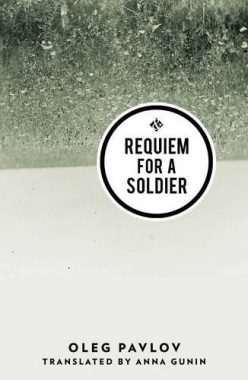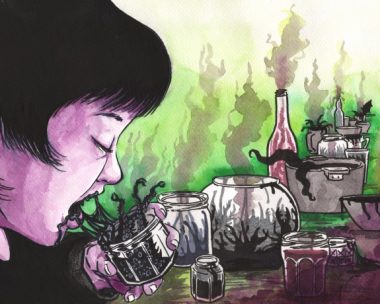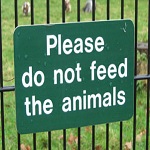These three stories were originally published by WhiskeyPaper (www.whiskeypaper.com) on October 6th 2013
It’s hard to find stories published in WhiskeyPaper that don’t carry a certain quality to them, so it came as no big surprise to find myself reading and re-reading the three short pieces that Becca Pollock published in WhiskeyPaper on October 6th of this year. Each taking up no more than what can be covered by one’s hand (how do you like that for a unit of measure?), bear an assumed familiarity with the reader, but a distance that pulls that reader far away from where they are comfortable.
Take for example the first story, Coming And Going, which in its single, long paragraph existence carries the weight of an entire man’s life. The joy in this piece is, again, the assumption that Pollock is willing to take with the reader: she doesn’t try to fill in the gaps of what happened before or after this moment—she simply wants you to come along for this instance, this one moment. The trust Pollock grants the reader is worth it, as you are able to see only what she wants to show you; a powerful final moment for her characters. Before moving on to the next piece, I’ll share with you Coming and Going:
Coming And Going
He was knocking on the door to Stan’s trailer, fist pounding, you know, because there was no way Stan wasn’t there, what with his rusted out Chevy in the parking space out front, no way he wasn’t sitting in the living room with his space heater fighting off that post-Christmas chill—this is what my dad said after he’d gone to Stan’s trailer to holler ‘cause Stan’s TV’s sound was making the aluminum siding of our trailer buzz and all—but as he was standing on the step to our neighbor’s trailer knocking and knocking he up and decided something just wasn’t right so he tested the handle and what do you know, it opened to Stan, sitting in the living room all right, but for what looked like days, congealed mac and cheese on a TV tray in front of him, head leaned back over the worn top cushion of the sofa so all my dad could see was that grisly five o’clock shadow like someone snoozing—only, my dad said, he wasn’t sleeping or watching TV, no, he wasn’t doing much of anything at all for three days, according to the coroner, meaning Christmas Eve he made himself some Kraft in a tarnished pot, scraped half of it into a bowl, cracked open a beer, and had a heart attack right there, a few bites of mac and cheese probably making their way down his throat; that’s how it goes in our sort of neighborhood, people move in and if you meet them, you meet them, if you don’t, you don’t, and sooner or later they leave one way or another.
The next short, Hillside Park Zoo, carries the same tone of a familiar narrator, and the same theme of loss, though certainly not of life. Pollock again is able to keep the story tight and succinct while still illustrating a turning point for the narrator who, recalling a zoo trip after her father leaves them, also reveals a secret kept by the mother.
It’d be easy to become too heavy handed with such a story, and in fact many people do become too heavy handed with it. But Pollock is careful and conservative with her prose—she allows for glimpses, but not stares. Read for yourself:
Hillside Park Zoo
My mother took me to the zoo the day she told me that my father left us to marry his high school sweetheart. I was ten, and—never mind that I wasn’t being swung between the arms of my parents—I realized the zoo was lousy. Every pathway was cracked and trampled with gum, there wasn’t even a reptile house, the flamingos were gray. But my mother loved it, and she stood in front of the lions for nearly an hour, cooing to the sleeping beasts.
Years later, on the day I finally moved out on my own, my mother confessed that my father never had another woman. She’d driven him away.
I haven’t been to a zoo since that trip, but from my first apartment I could hear the lions roaring at night, and I roared with them.
The final short by Becca Pollock is perhaps more sentimental than the other two, but not sugary sweet with melodramatic prose. Again, Pollock demonstrates her ability to balance tone and emotion in bite-sized stories, taking both sentimentality and crudeness in measure to deliver the reader with something more than just a little story. The narrator is presented with the sad thought of what it must be like for a mother who lost a daughter, but this presentation doesn’t happen after a huge realization in the narrator’s life, as a less skilled writer might want to happen. Instead, the moment comes when the narrator is just going about life, which is closer to believable—making the story all the more poignant, as you can read:
Passing By
Yesterday I went by that roadside memorial, the one that sprung up just off the gravel road along the creek where that little girl had been walking to meet her ma at the fruit stand but was struck by some SUV from out of state instead. Flowers and candles have been there maybe six months and people at the town meetings have been talking about clearing it all out before winter sets in. I don’t give these town matters much thought usually, but it was a foggy morning and I was walking along looking for a tree to piss on after my car ran out of juice and I just knew there was no way I was going to make it to work at the shop on time. I almost walked by the thing, caught up in my own sort of pity. But then I noticed this little blue teddy bear with a washed out bowtie around his neck. He was on his back blowing into the road, so I picked him up, looked into his shiny black eyes, and perched him on the left arm of the plywood cross. That’s when I saw all the stumps of wax from candles burned too long. Right in the middle of them was a new white one, still burning. My mind jumped to the girl’s mother, out there each morning at the crack of dawn, lighting that candle and ready with a new one should the old one burn out. I hope she came by again this morning and noticed the bear. I hope she knows she isn’t the only one looking after her daughter.
All three, taken as a whole, allow us to see how Pollock is able to draw in the reader through the closeness of the narrator—these are stories told over a drink or during a car trip. That closeness, that familiarity, allows Pollock to present quite a lot in very small works, giving the reader just enough to see the image and move on.
[author] [author_image timthumb=’on’]http://minotaursspotlight.com/wp-content/uploads/2013/08/KabikM.jpg[/author_image] [author_info]Matthew Kabik lives in Lancaster, PA where he writes reviews and short stories from the third floor of his home (and sometimes his dining room table, if the mood strikes). His work has appeared in Structo Magazine, Five Quarterly, Cease Cows, Nib Magazine and has work forthcoming in Pea River Journal and WhiskeyPaper. He also writes reviews for Necessary Fiction. Follow him on twitter @mlkabik or visit his author site/blog at www.matchstickcircus.com[/author_info] [/author]




